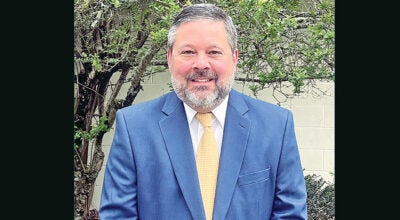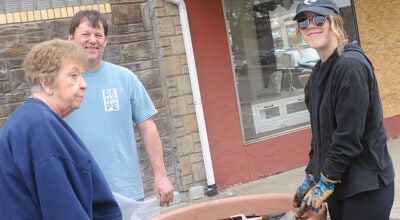Workers have Ebola preparedness meeting
Published 11:09 am Tuesday, October 28, 2014
Protocol, policies, procedures discussed
In the midst of the worst Ebola outbreak since the first recorded case of the disease in 1976, health care workers from around the Tri-State gathered at the 911 building in Ironton to discuss policies, procedures and protocol in place if someone in Lawrence County contracted the disease.
It’s called the Lawrence County Ebola Working Group and its purpose is gathering and exchanging contact information, becoming familiar with decision-makers at various agencies, receiving, reviewing and understanding the most recent information about Ebola assuring all agencies “speak as one voice” and developing and supporting accurate and timely public information.
Mike Boster, director of Lawrence County Emergency Management and chair of the Local Emergency Planning Committee (LEPC) said proper protocol is vital to proper handling of an Ebola patient.
“We all need to review the policies and procedures we have in place and then see what needs to be in place and share that information,” he said. “We need to be able to tell the public things when they ask questions if we encounter someone with Ebola.”
The Ebola outbreak has had very little impact on the United States. There have been four confirmed cases of the disease and one death. Two infections originated in the United States, one in Liberia and one in Guinea.
NBC freelance cameraman Ashoka Mukpo contracted Ebola in Liberia and is now clean of the disease and soon will return home from the Nebraska hospital where he has been treated since Oct. 6.
Thomas Eric Duncan died on Oct. 8 in a Dallas Hospital after being infected with Ebola in Guinea. Two nurses who cared for Duncan, Nina Pham and Amber Vinson, both were infected with Ebola and have both recovered. Pham was the first person to contract Ebola on American soil and Vinson made headlines by taking a commercial jet from Cleveland to Dallas days before testing positive.
Craig Spencer, a 33-year-old doctor living in New York City, tested positive for Ebola on Oct. 23. Spencer had recently returned from Guinea.
“We had a scare locally last Friday when a person arrived at Cabell Huntington Hospital’s emergency room who had been to Africa and was symptomatic,” Boster said. “It turns out the timeline wasn’t correct and it was determined this person does not have Ebola.”
Although Ebola does not pose an imminent threat to Ohio residents the Ohio Department of Health is working with local health departments, hospitals, physicians and other health care professionals to ensure everyone is prepared to handle an Ebola patient.
“The protocols are in place but they are constantly changing because the (Centers for Disease Control) keeps handing down different protocols,” Andy Watson, a nurse at St. Mary’s Medical Center, said. “Our main concern currently is the lack of personal protection equipment (PPE).”
Boster said much of the PPE is out of stock because health care agencies tried to get a head start and order equipment early.
Also discussed at the meeting were EMS and 911 dispatch protocols, gaps in communication and training and handling public information.
“We can deal with perceived gaps,” Boster said. “It’s the real ones we need to worry about.”
Earl “Buddy” Fry, executive director of Lawrence County Emergency Medical Services, said his agency’s protocol is consistent with the recommendations of the CDC.
“If a person is suspected of having Ebola the EMS is notified and responds,” Fry said. “Ons difference in Lawrence County is we have a tactical EMS, which is more of an all-hazards team.”
Response would be with a specially outfitted ambulance known as the Ebola transport truck, which is equipped to safely transport an Ebola-infected patient.
“We have a potential public health emergency,” Boster said. “Ohio’s guidelines are equal to if not tougher than the CDC’s.”
Getting the word out quickly and accurately was something with which everyone at the meeting agreed.
“If anyone is going to put out any information we need to make sure it is accurate,” Susan McComas, of the Lawrence County Health Department, said. “We need to make sure everyone knows how to handle a call or a walk-in from someone who has or is showing symptoms of Ebola.”
Another topic discussed was ensuring residents although Ebola is in the United States, one’s chances of contracting the disease or coming in contact with someone who has the disease are highly unlikely.
The Ohio Department of Health has activated a 24-hour call center to answer Ohioans’ questions about Ebola and the recent events in Ohio in an effort to ensure Ohioans get accurate and timely information. The number is 1-866-800-1404.
“None of us here have the job of inducing panic,” Boster said. “But, none of us have a crystal ball, either. We need to put out accurate information so people know what to do and we have to have a plan for every practical circumstance.”





